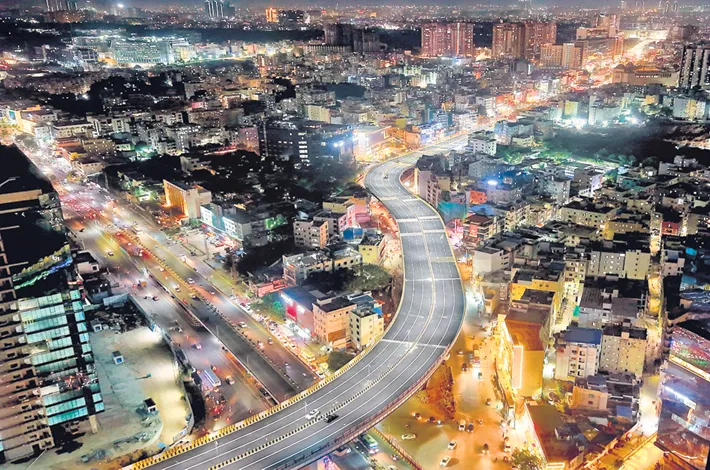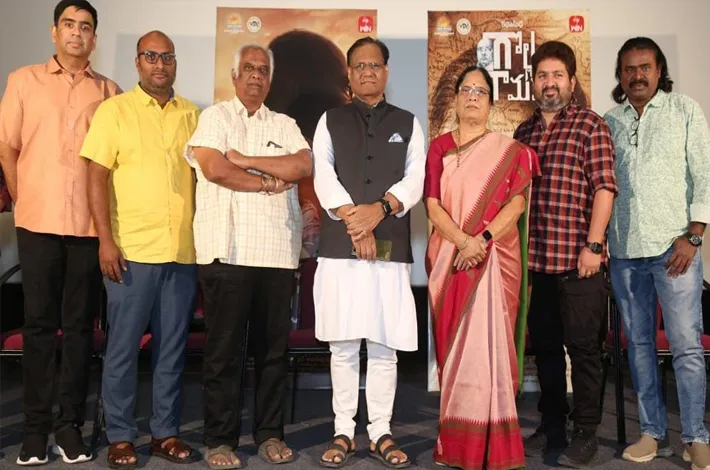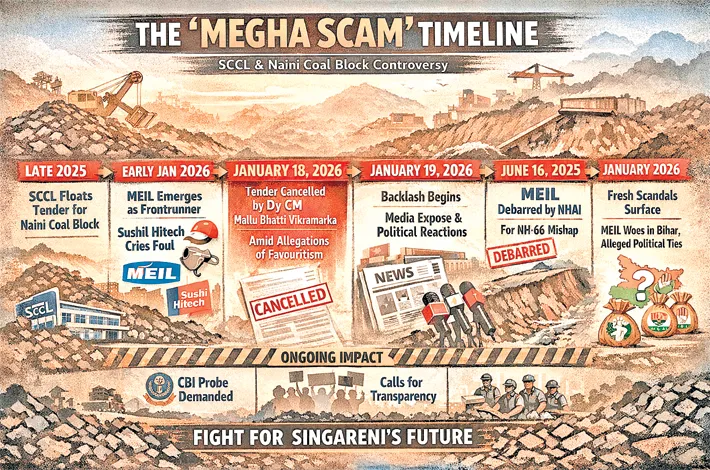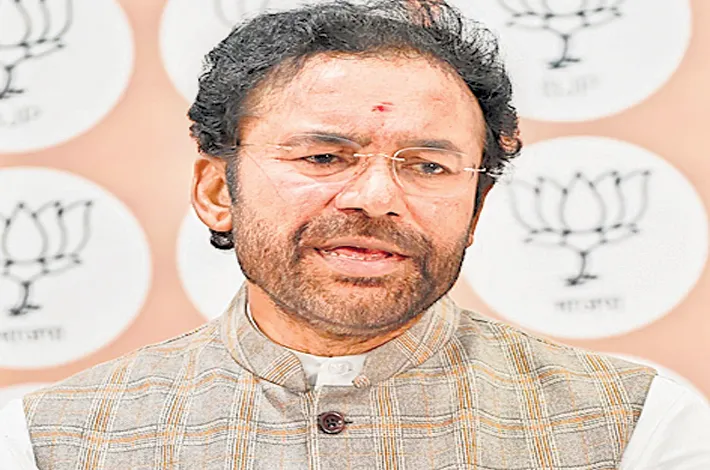Future City turns sour for small landowners
18-08-2025 12:00:00 AM

Land owners in limbo
- Ban on layout sanction in 56 revenue villages across seven mandals
- No buyers due to the ban
- No clarity when the master plan would be ready
- Future City would span 765.28 square kilometers
The Telangana state government’s ambitious plan to develop a "Future City" in Rangareddy District has hit a roadblock, with small landowners caught in the crossfire of a government order (G.O.Ms.No.69, dated March 12, 2025) banning the sanctioning of layouts in 56 revenue villages across seven mandals. The order, issued to facilitate the preparation of a comprehensive master plan for the Future City Development Authority (FCDA), has inadvertently created financial distress for small landowners while allegedly enabling land sharks and influential players to exploit the situation.
The Future City project, envisioned as a modern urban hub spanning 765.28 square kilometers, aims to transform the region between the Srisailam National Highway and Nagarjunsagar State Highway into a thriving economic and industrial cluster. Strategically located near the Rajiv Gandhi International Airport in Shamshabad, the area is set to feature multi-modal connectivity, modern urban amenities, radial roads, metro connectivity, and key institutions like the Young India Skill University and Education Hub. The Telangana Industrial and Infrastructure Corporation (TGIIC) will spearhead the development of economic and industrial clusters across 12 zones, promising significant growth potential.
To ensure planned development, the government constituted the FCDA under the Telangana Urban Areas (Development) Act, 1975, and excluded 36 villages from the Hyderabad Metropolitan Development Authority (HMDA) to bring them under the FCDA’s jurisdiction. The ban on layout approvals in these villages is intended to prevent haphazard development until the master plan is finalized. However, this decision has sparked significant challenges for small landowners, particularly those in urgent need of funds for emergencies like medical expenses or family obligations such as marriages.
Small Landowners in Distress
The ban has led to a sharp decline in land prices in the affected areas, as prospective buyers are hesitant to invest in properties with uncertain development prospects. Small landowners, many of whom rely on their land as their primary asset, are facing severe financial strain. "I need to sell my half-acre plot to pay for my daughter’s wedding, but buyers are offering prices far below the market rate because of the ban," said K. Ram Reddy, (Name changed) a farmer from Kadthal Mandal. "We’re being forced to sell at a loss, and there’s no clarity on when the master plan will be ready."
Local reports suggest that land sharks and real estate speculators are capitalizing on this uncertainty, pressuring small landowners to sell their plots at rock-bottom prices. With the master plan still under preparation, these opportunistic buyers are offering as little as 20-30% of the land’s potential value, knowing that prices are likely to skyrocket once the Future City project takes shape. "It’s a waiting game for the wealthy, but for us, it’s a matter of survival," said S. Lakshmi, (Name changed) a landowner from Kothur village, who is struggling to fund her husband’s medical treatment.
Insider Advantage and Alleged Exploitation
Adding to the woes of small landowners are allegations that real estate developers, influential political leaders, and bureaucrats with insider knowledge of the master plan are quietly acquiring prime land at depressed prices. Sources claim that these players are leveraging their access to preliminary details about the Future City’s zoning and infrastructure plans to target high-value plots likely to appreciate significantly once the master plan is unveiled. "Certain developers already know which areas will be earmarked for industrial or commercial zones," said a local real estate agent on condition of anonymity. "They’re swooping in now, while small farmers are desperate."
This situation has raised concerns about transparency and fairness in the planning process. Critics argue that the government’s delay in finalizing the master plan is inadvertently enabling such exploitation. "The lack of a clear timeline for the master plan’s release is creating a vacuum that benefits those with power and connections," said M. Venkatesh, a community leader in Amangal Mandal. "Small landowners are being squeezed, while the elite are positioning themselves to profit."
Government’s Intent and Challenges
The state government defends the layout ban as a necessary step to ensure orderly development and prevent speculative real estate projects that could derail the Future City’s vision. The FCDA, chaired by the Chief Minister and including key officials like the Principal Secretary of Municipal Administration and Urban Development (MA&UD), is tasked with creating a master plan that balances economic growth, infrastructure development, and environmental sustainability. The government has emphasized that the Future City will boost Telangana’s economy by attracting investments, creating jobs, and establishing the region as a global hub.
However, the absence of a fixed timeline for the master plan’s completion has left landowners in limbo. The government’s order references inputs from the HMDA, the Director of Town and Country Planning (DTCP), and the Rangareddy District Collector, indicating a complex planning process involving multiple stakeholders. While the intention is to avoid unplanned urbanization, the delay is exacerbating financial hardship for vulnerable communities.
Calls for Action and Caution
Metro India, a leading regional publication, has urged landowners to avoid distress sales and wait for the master plan’s release, which could significantly enhance land values. "The Future City project holds immense promise, but landowners must stay patient and not succumb to pressure from land sharks," the outlet stated in a recent editorial. It also called on the government to expedite the master plan’s preparation to minimize uncertainty and protect small landowners.
Urban planning experts echo this sentiment, emphasizing the need for transparency and public engagement. "The government should hold consultations with local communities and provide regular updates on the master plan’s progress," said Dr. Anjali Rao, an urban development consultant based in Hyderabad. "This would build trust and discourage predatory practices by speculators."
A Path Forward
The Future City project represents a bold vision for Telangana’s growth, but its implementation must balance ambition with fairness. Small landowners, who form the backbone of the region’s agrarian economy, deserve clarity and protection from exploitation. The government could consider interim measures, such as a grievance redressal mechanism or financial support for landowners facing urgent needs, to mitigate the ban’s impact.
As the FCDA works to finalize the master plan, the state must prioritize transparency to prevent insider profiteering and ensure that the benefits of the Future City project are equitably shared. For now, landowners like Ram Reddy and Lakshmi are left hoping for a swift resolution, clinging to the promise of a brighter future while navigating the challenges of an uncertain present.








